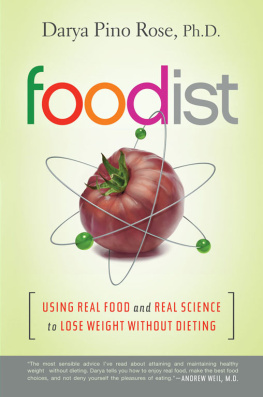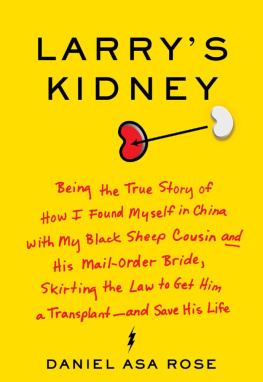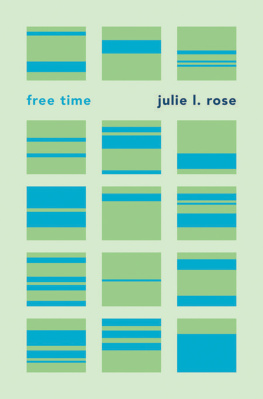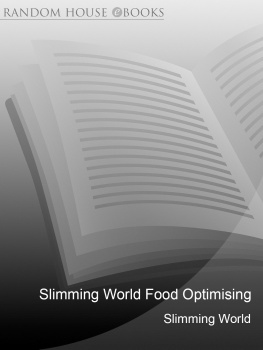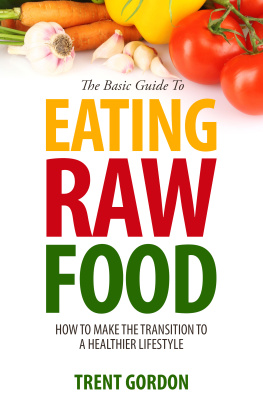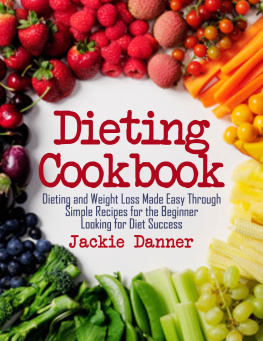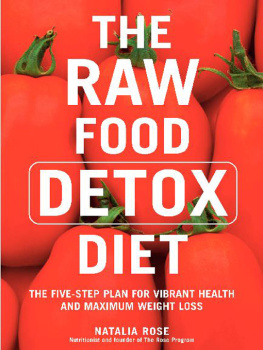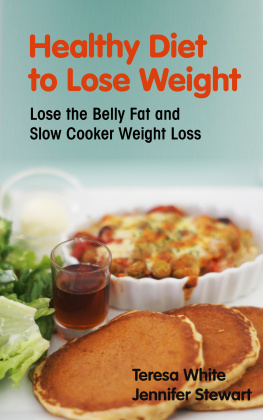To my dad, for believing in me since before I was born.
Contents
We are what we repeatedly do. Excellence, then, is not an act, but a habit.
ARISTOTLE
W HAT T HIS B OOK I S , AND I SNT
Ive been on a diet for two weeks and all Ive lost is two weeks.
TOTIE FIELDS, COMEDIAN
I dont like stuff that sucks.
BEAVIS AND BUTTHEAD
Life itself is the proper binge.
JULIA CHILD
Dieters are a funny breed and by many criteria could be classified as insane. Gleefully participate in self-inflicted suffering? Check. Restrict entire categories of edible, nutritious, and tasty food? Check. Do the same thing over and over again and expect different results? Check. Throw in a couple of face tattoos and straitjackets, and well be ready for the asylum.
Amazingly, there are very few of us who do not belong to the dieter tribe. Dieting, and specifically chronic dieting (bouncing back and forth between various diets, food philosophies, and, ahem, body sizes), is a popular hobby in the twenty-first century. A combination of supersizing and unrealistic beauty standards has forced most of us to question the way we eat and look, and the dieting industry has been more than happy to offer us thousands of weight-loss solutions every year. Bless their hearts.
I would say it is unfortunate that their pills, programs, and bonus DVDs havent really worked out, but now that Im a foodist, I see the failure of the dieting industry to make us thinner or healthier as one of the luckiest mess-ups of our generation. Just imagine if it worked. How horrible would it be if, in order to look and feel amazing, you had to deprive yourself of foods you love for the rest of your life, skipping birthday cake and Michelin-rated restaurants, just so you can feel good about yourself when you look in the mirror? Seriously, screw that. It isnt necessary, even if you did have the willpower to pull it off (and you probably dont). There is a better way, and all it takes is thinking about food, health, and weight loss not like a dieter, but like a foodist.
If youve tried any weight-loss program in the past, you probably know from experience that dieters almost never eat food. Sure, dieters eat protein, fat, carbs (though they may try not to), calories, calcium, and omega-3s, but to them food is just a vehicle to ingest essential nutrients, not the ultimate reason for eating. I know this because I was a chronic dieter for most of my life, and over almost two decades Ive tried nearly every weight-loss strategy under the sun.
My dieting adventure started unintentionally. One sunny morning in sixth grade I walked into the kitchen to find my mother making what looked like a milkshake. Thinking I might have won the breakfast lottery, I enthusiastically inquired what it was. She explained that it was indeed a chocolate shake, but it was for a new diet that was supposed to help her lose weight. My eleven-year-old translation: we can have chocolate milkshakes for breakfast and not worry about getting fat. My mom agreed to share, and breakfast was never the same again.
Over the next few years I went from SlimFast every morning to a diet almost completely free of fat (remember the 1990s?). By the time I got to college, it was nothing but meat, eggs, and cottage cheese according to Dr. Atkins. From there I moved to The South Beach Diet and started running marathons to burn extra calories. In other words, I was the perfect example of what Michael Pollan, author of The Omnivores Dilemma and real-food hero , aptly describes as our national eating disorder. I embraced every new diet as if it had the potential to solve all my problems, following every ridiculous rule without question or exception.
In retrospect the most interesting part is not that I tried all these diets (clearly I was not alone in my efforts), but that I was good at them. I was very thin (i.e., successful) on my low-fat regimen in high schoolI was a ballerina and definitely looked the part. After I stopped dancing and put some weight back on, I had no trouble abandoning bread, rice, and potatoes for several years while I got back down to size 0 on the Atkins diet. I gladly woke up at 5:00 A.M. for two-hour workouts every weekday and clocked three-hour-long runs every Sunday for marathon training during my first few years of graduate school. Though my successes may have been fleeting, a weak will has never been the reason. The problem wasnt me. The problem was that starving yourself of energy, nutrients, and pleasure is not the most effective way to attainlet alone maintain the body you want. It is also no way to live your life.
Chronic dieters believe that success comes from sacrifice. If only we could deprive ourselves a little more, punish our bodies even harder, then we could finally look amazing and, of course, be happy. But as someone who has tortured herself in every way imaginable, I can guarantee you that this path does not lead to happiness. Why? Because it turns life into a constant struggle. You never really win if youre dieting. When you are constantly depriving yourself, happiness is always just out of reach. So even if you could confidently identify the best, most effective restrictive diet, why should this be your goal? Shouldnt there be more to life than constantly denying yourself the things you enjoy? Now youre thinking like a foodist.
As simple and logical as this sounds, I know from experience that ending deprivation is tough for chronic dieters. No pain, no gain is fundamental to our psychedont we deserve to suffer for being so fat? Most of us have been victims of a vicious, convoluted feedback loop through which we are rewarded for our sacrifices with temporary (but often dramatic) weight loss at the beginning of each new diet. This creates the illusion of success. But you have to ask yourself: shouldnt real success be defined as lastingnot temporaryweight loss?
Nutritionists and M.D.s havent helped much either. Virtually all weight-loss experts tell us we need to eat less and move more to lose weight, with the obvious implication being that we need to diet (deprive ourselves) and exercise (suffer at the gym) to achieve our goals. You cant break the first law of thermodynamicsits science! But this line of thinking neglects the reasons we are compelled to overeat in the first place and doesnt give us the tools we need to actually implement their simple eat less, move more, lose weight equation. It also implies that failure stems from a lack of willpower (why arent you eating less, like youre supposed to?), rather than from a plan that fails to account for the nuances of the human psyche. How many people do you know who eat solely for fuel? All the thin people, right? Not a chance. Sure, we all sometimes eat because were hungry. But the specific foods we choose and how much we eat are largely influenced by our habits and environment. In other words, it is not the concept of eating less to lose weight that is wrong, but the idea that we can lose weight and keep it off without accounting for why we make the choices we do.
My own experiences convinced me that willpower was not the missing piece of the equation. After all, I was following all the rules, but maintaining my weight was still a constant struggle. At the time I didnt know what I was missing, but I was confident that humans have not always had this problem and that something about the current weight-loss paradigm must be wrong. It wasnt until my second year of grad school that I realized I finally had enough training in biology to go directly to the scientific literature for answers. Before, I had relied on diet books and magazine articles to fumble my way through different weight-loss strategies. Now that I had the knowledge and lab experience to read and understand the science, I wanted to see the data for myself.

